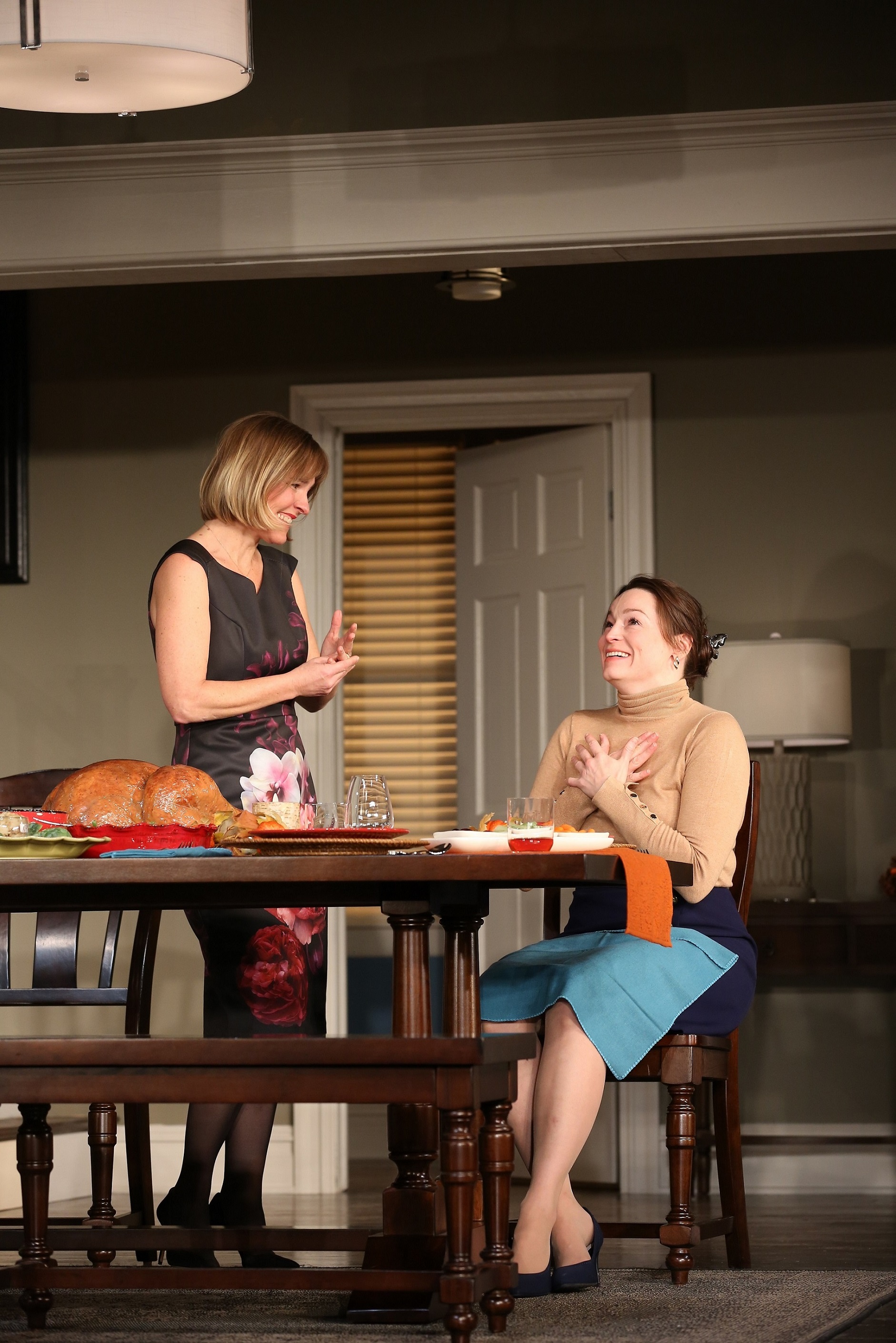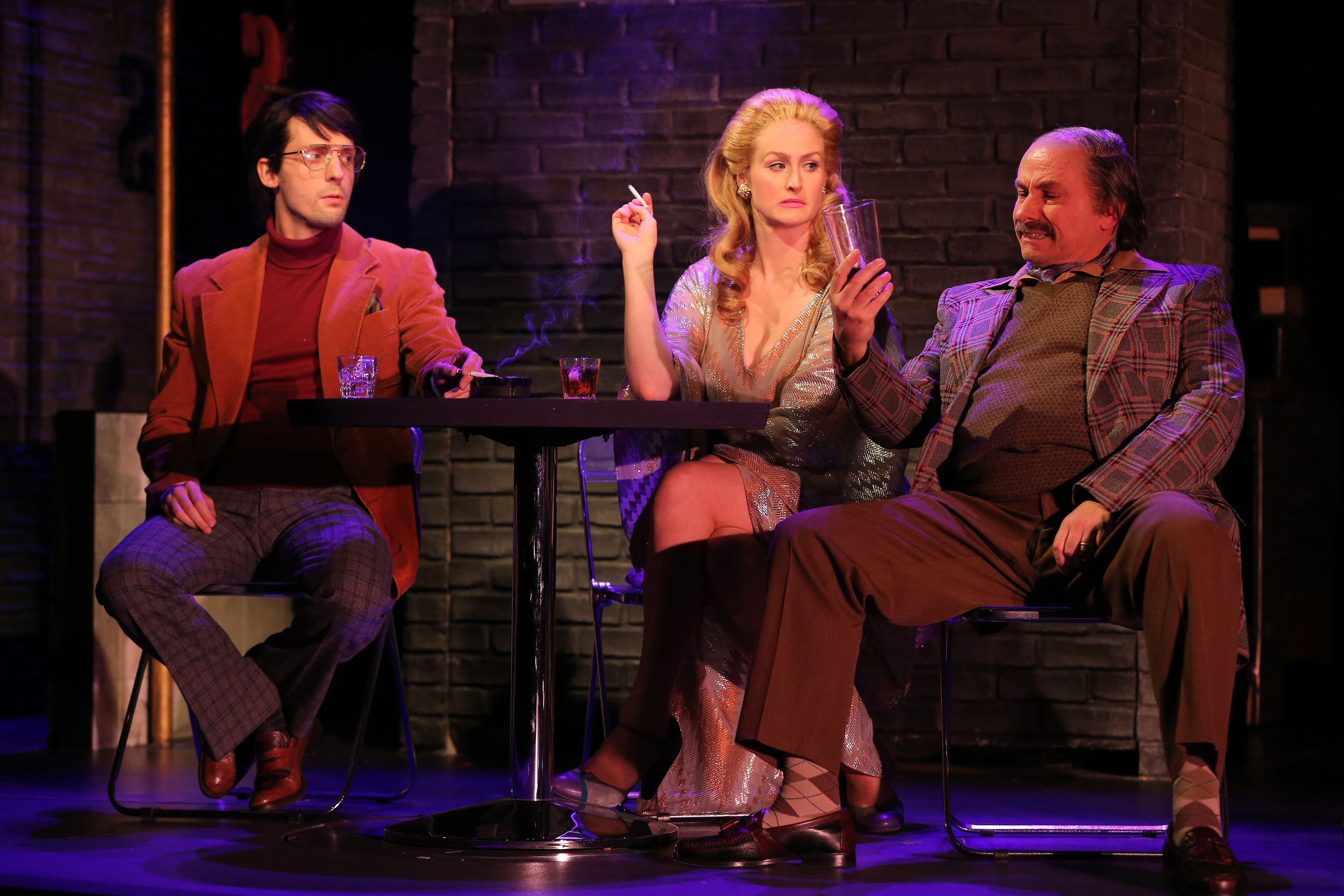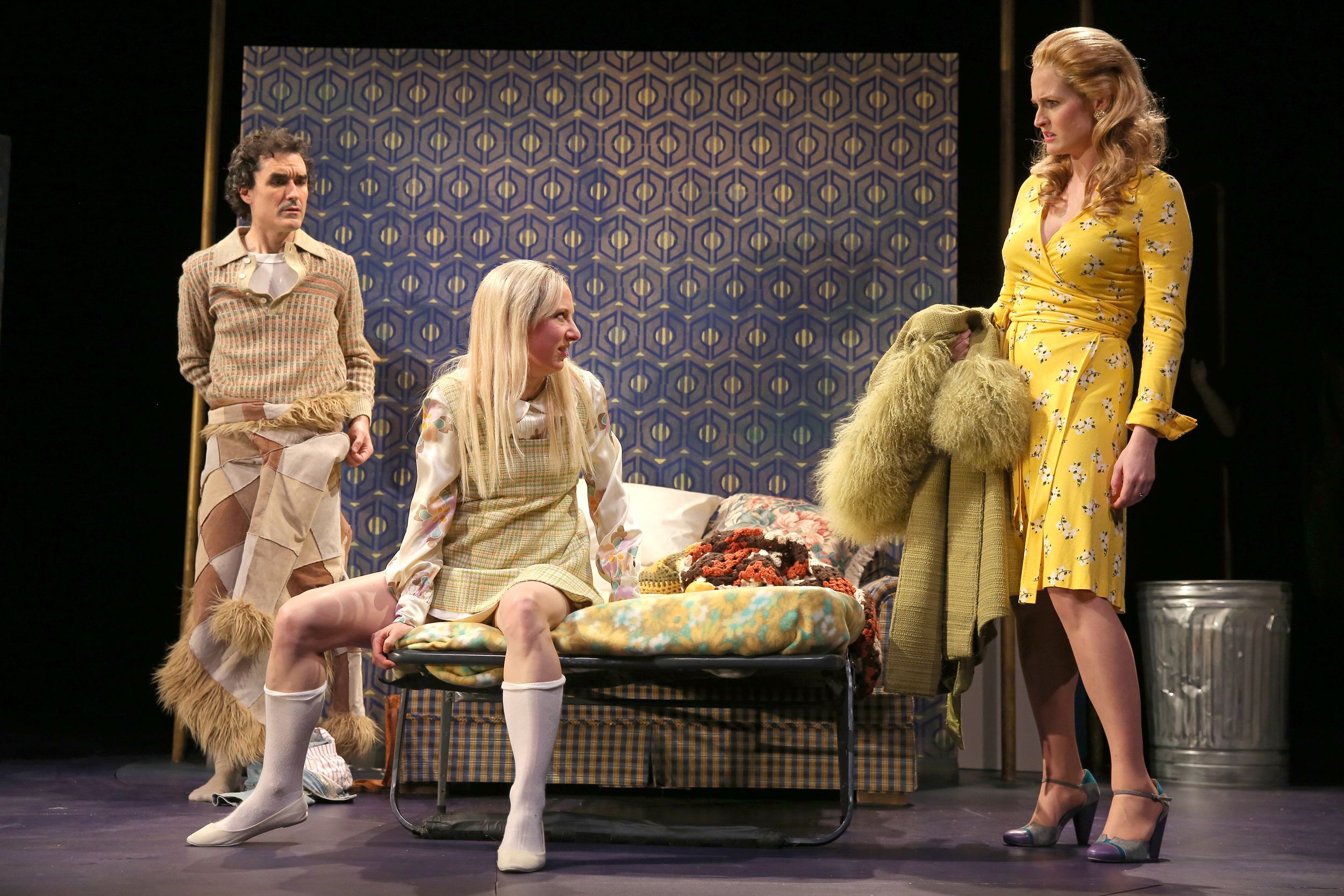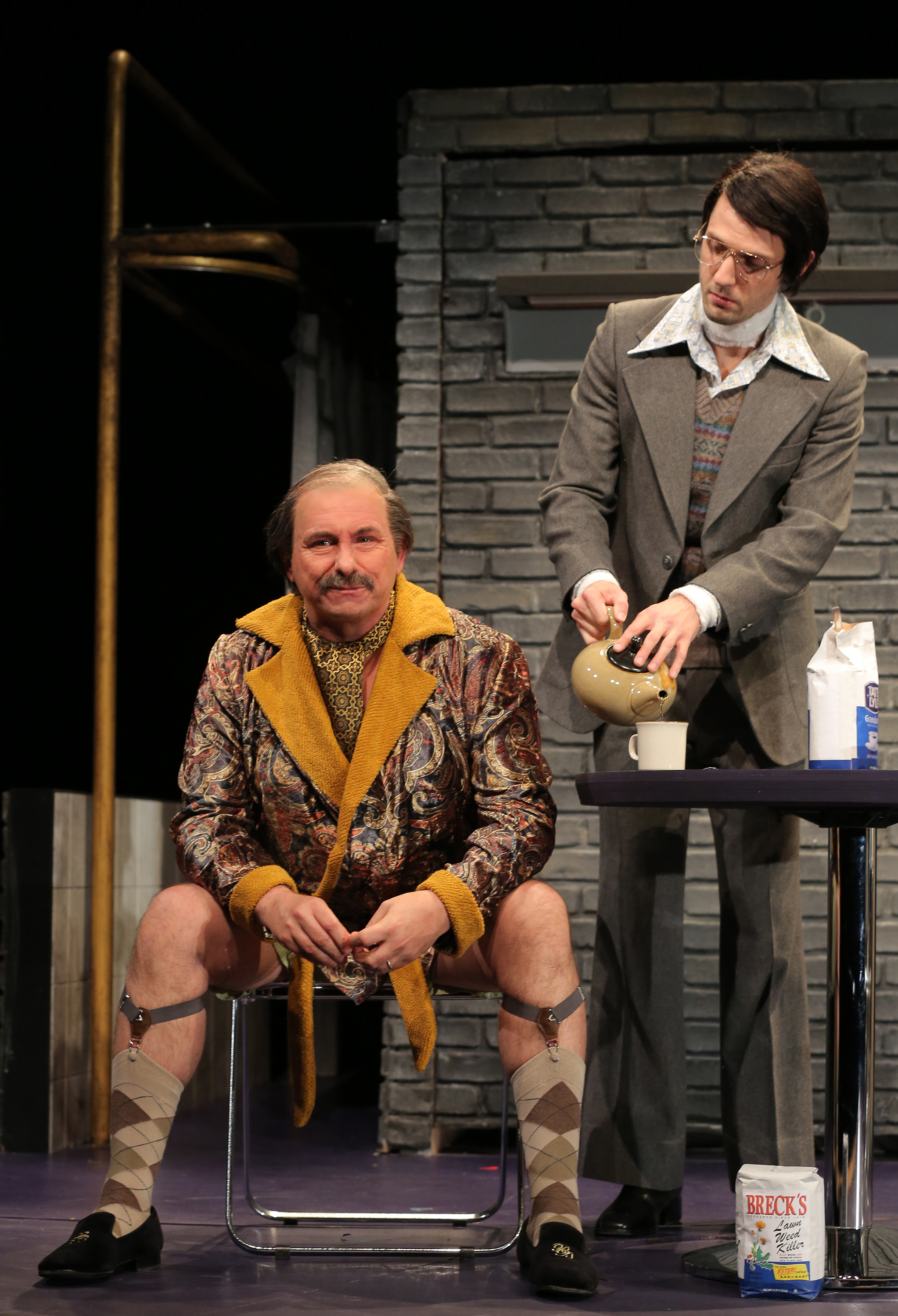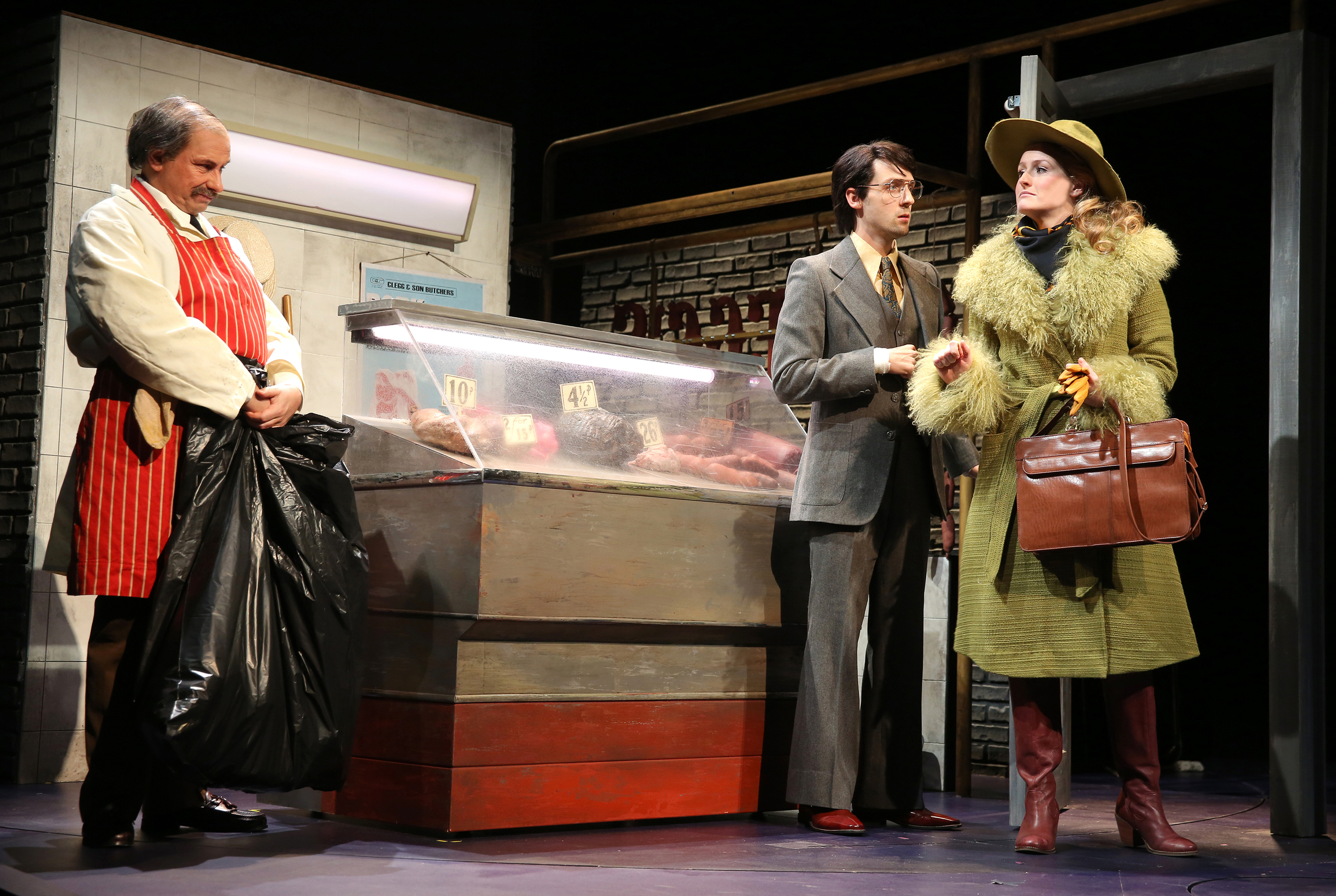Review of Thousand Pines, Westport Country Playhouse
In the news this week is the story of a shooting of numerous people in a bar in a town called Thousand Oaks. The play I’m reviewing deals with the aftermath of a shooting at a school called Thousand Pines. The echo is merely coincidence, but it’s also baleful. Thousand Pines, by Matthew Greene, directed by Austin Pendleton, takes its impetus from the fact that mass shootings occur with distressing regularity in our country. Such murders are a chronically recurring topic in our news feeds, and, for the dead and wounded, often chosen at random, an utterly sad and senseless end, while for those close to the victims, and those who knew the attacker, life becomes a traumatic and almost unbearable “before” and “after.”
The great strength of Greene’s play is that it doesn’t treat these matters as filtered through the media but rather as events that occur in the lives of people who aren’t defined by their roles in the horror story. These are people who have their individual ways of coping, amid others, also effected, who they may not trust, understand, or even like. The messiness of these lives is made even more self-aware and confused by the fact that murder has intruded, and the death of loved ones, never an easy situation, becomes traumatic, nagged by the question of how things could have gone differently.
At the Forsters; Andrew Veentra, (Actor 6), Kelly McAndrew (Actor 1), Katie Ailion (Actor 5) in Thousand Pines at Westport Country Playhouse (photographs by Carol Rosegg)
The play’s success, as theater, depends on how one reacts to a dramatic gimmick. A cast of five play all the characters in the play, which takes place in three different households, all represented by the same set, a dining room that stands for the identical layouts of tract housing. The three families—the Fosters, the Kanes, and the Garrisons—all send their children to the same middle school and all are trying to cope with their first Thanksgiving since the tragedy, several months ago. At the heart of each scene is the mother of each family, and part of the fascination of the play is watching Kelly McAndrew (Actor 1) enact three very different matriarchs. Among the Fosters, she’s a peppy Martha Stewart type, in deep denial; among the Kanes, she’s a take-charge stepmother of the slain boy and she’s seeking retribution via a civil lawsuit against the school; among the Garrisons, she’s a devastated mother, who may be self-medicating and who recognizes more than ever how dysfunctional her way of life is.
The cast of Thousand Pines: William Ragsdale (Actor 2), Katie Ailion (Actor 5), Joby Earle (Actor 4), Andrew Veenstra (Actor 6), Kelly McAndrew (Actor 1), Anne Bates (Actor 3)
By the time we reach the third house, the characters we’ve met in the other households can easily begin to blur. Greene’s script can be a bit schematic in setting out the details by which we will differentiate characters who are only circumstantially different. Good as Katie Ailion (Actor 5) is as a former girlfriend pretending her relationship with the remaining Foster boy hasn’t ended, if only to promote a false status quo, that character pales beside the bitter, recriminatory daughter she plays among the Kanes. Of the other trio of characters played by a single actor, Joby Earle (Actor 4) fares best: he’s a bit of comic relief in the first scene, as someone who got mauled by a violent Thanksgiving’s Day shopper; while, in the second household, he’s a tense dad in mourning who seems little more than a piece of furniture in his own house until provoked to explosion; in scene three, he’s the uncle of the deceased, a ne’er-do-well who deeply resents the decision by the shooter’s family to turn up at each funeral.
At the Garrisons: Joby Earle (Actor 4), Kelly McAndrew (Actor 1), foreground; Andrew Veenstra (Actor 6), background
The way the stark situation plays out in each household differs significantly, colored by reactions to the maternal figure in each scene. The Foster son (Andrew Veenstra) is aghast at his mother’s attempt at blithe holiday activity; the daughter in scene two disputes the advisability of a lawsuit and the means necessary to attain a deposition from a witness; the mother in the Garrison household doesn’t seem to tolerate anyone who’s present, which is why the appearance of a stranger sparks what may be the play’s most compelling sense of compassion and affinity in shared loss. Veenstra (Actor 6) plays the most conflicted character well, underscoring what may be the play’s own sense of uncertainty about how to make amends for its own presumptions.
The cast brings these situations to life in a fascinating world premiere of a play that, in providing a glimpse of the murder scene via that witness (Anne Bates, Actor 3), opens questions it doesn’t answer, leaving us in some doubt about how events merely referred to by others actually unfolded—to William Ragdale (Actor 2) falls most of the exposition. The plot, as such, isn’t the point however, and Greene’s characters, under Pendleton’s direction, make us inhabit that difficult space of questioning and judging the actions, and even the emotions, of other people.
At the Kanes: Kelly McAndrew (Actor 1), Anne Bates (Actor 3)
The play, which was developed in the WCP’s New Works Circle Initiative, runs several risks, and all are worth the effort. First, there’s the fact that the subject matter risks trying to make art out of tragic loss. Then there’s the risk that our investment with this or that character will be frustrated by the shifts in the play. Finally, there’s the risk that, however one tries to structure such a story, the logic of events will feel imposed and artificial. In essence, Thousand Pines is a kind of open question about how we should tell stories that are hard to countenance, and how we make sense of mass murder as a very real part of “who we are,” as people of the United States in the early twenty-first century.
Thousand Pines
By Matthew Greene
Directed by Austin Pendleton
Scenic Design: Walt Spangler; Costume Design: Barbara A. Bell; Lighting Design: Xavier Pierce; Sound Design and Composer: Ryan Rumery; Fight Director: Michael Rossmy; Production Stage Manager; Roxana Khan
Cast: Katie Allion, Anne Bates, Joby Earle, Kelly McAndrew, William Ragsdale, Andrew Veenstra
Westport Country Playhouse
October 30-November 17, 2018



